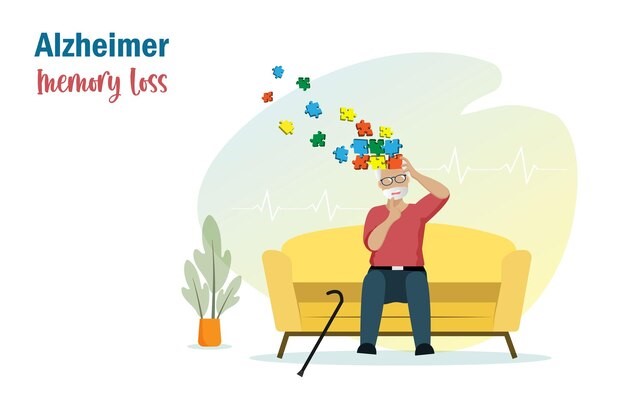Dementia and Alzheimer’s disease are more than just medical conditions; they are life-altering challenges that affect individuals and their families on emotional, physical, and psychological levels. While dementia is an umbrella term for a range of cognitive impairments, Alzheimer’s is the most common type, accounting for about 60-70% of all cases. As these conditions progress, they impact memory, decision-making, communication, and the ability to perform everyday tasks. Specialized care can make a profound difference in navigating this journey, providing tailored support to ensure dignity, comfort, and improved quality of life.
The Complexity of Dementia and Alzheimer’s
Dementia is not a single disease but rather a collection of symptoms that affect cognitive functioning. It can result from various causes, such as vascular dementia (caused by restricted blood flow to the brain), Lewy body dementia, or Alzheimer’s disease. Symptoms typically include memory loss, confusion, difficulty with language, mood changes, and impaired reasoning.
Alzheimer’s, the most well-known form of dementia, is a degenerative brain disorder caused by abnormal protein deposits that disrupt neural communication. This leads to the death of brain cells and a gradual decline in mental and physical capabilities. Early symptoms of Alzheimer’s include forgetfulness, trouble organizing thoughts, and misplacing items, which may progress to severe disorientation and an inability to recognize loved ones.
Caring for someone with dementia or Alzheimer’s requires a nuanced understanding of these conditions and an empathetic approach to managing their unique challenges.
The Emotional Toll on Families
A dementia or Alzheimer’s diagnosis not only affects the individual but also places a significant emotional burden on families. Watching a loved one lose parts of themselves can be heartbreaking, and the responsibility of caregiving often comes with feelings of guilt, exhaustion, and helplessness.
Family members often struggle to balance caregiving duties with their own lives, careers, and mental health. The unpredictability of dementia-related behaviours, such as aggression, wandering, or sundowning (increased confusion in the evening), can be overwhelming without proper support. This is where specialized care becomes invaluable, providing professional assistance to manage these challenges with expertise and compassion.

How Specialized Care Makes a Difference
- Expertise in Cognitive Care
Specialized caregivers are trained to understand the complexities of dementia and Alzheimer’s. They are equipped with techniques to handle memory loss, confusion, and behavioural changes in ways that promote comfort and reduce anxiety. For instance, caregivers might use validation therapy to acknowledge the emotions behind a senior’s words, even if their statements are factually incorrect, helping to de-escalate distress.
These professionals also adapt their communication to match the senior’s cognitive abilities, using clear and simple language or visual cues to ensure understanding.
- Creating Safe Environments
Safety is a primary concern for individuals with dementia, who are prone to wandering or accidents due to impaired judgment. Specialized care providers can modify living spaces to reduce risks, such as installing grab bars, securing exits, or removing tripping hazards.
In addition, they supervise daily activities to prevent mishaps while encouraging as much independence as possible. This balance between safety and autonomy fosters confidence and dignity in seniors.
- Personalised Care Plans
Every individual experience dementia differently, which is why a one-size-fits-all approach doesn’t work. Specialized care focuses on creating personalized care plans that cater to the specific needs, preferences, and medical conditions of each person.
For example, some individuals may benefit from structured routines that reduce confusion, while others might require more frequent reminders or assistance with activities of daily living (ADLs), such as bathing, dressing, and eating. This tailored support ensures that seniors receive the care they need without feeling like their independence is being stripped away.
Promoting Emotional Well-being
Beyond addressing physical and cognitive needs, specialized care also focuses on emotional and social well-being. Dementia and Alzheimer’s can leave individuals feeling isolated, frustrated, or disconnected from the world around them. Caregivers who are trained in these conditions use compassionate strategies to uplift spirits and create meaningful connections.
Activities such as reminiscence therapy, music sessions, or guided exercises can spark joy and stimulate the mind, even in advanced stages of the disease. Simple gestures, like holding a hand or sharing a laugh, go a long way in creating moments of happiness for both the senior and their families.
Caregivers also play a crucial role in educating family members about dementia, helping them understand behavioural changes and teaching them how to interact more effectively with their loved ones. This support fosters stronger familial bonds and reduces the emotional strain on everyone involved.
Supporting Families Through the Journey
The journey of dementia or Alzheimer’s care doesn’t have to be walked alone. Specialized care extends its reach to include support for families, offering respite care that allows primary caregivers to take breaks and recharge. These services are vital in preventing burnout and ensuring that family members can continue providing love and support without becoming overwhelmed.
Professional care providers also offer guidance on navigating the progression of the disease, from understanding medical treatments to planning for long-term care needs. Having an experienced partner to rely on can make the journey less daunting and more manageable.
The Importance of Early Intervention
Early intervention is critical in dementia and Alzheimer’s care. Seeking professional support at the onset of symptoms allows caregivers to establish routines, create safe environments, and develop strategies that will remain effective as the disease progresses. It also ensures that seniors and their families receive the guidance and resources they need from the very beginning, reducing stress and improving outcomes.
Conclusion
Dementia and Alzheimer’s are complex conditions that require more than just medical intervention; they demand empathy, understanding, and specialised care that addresses every aspect of a person’s well-being. From ensuring safety and personalising care plans to fostering emotional connections, professional caregivers play a transformative role in supporting seniors and their families through this journey.
If you’re seeking compassionate and expert support for a loved one, SD Home Care offers tailored dementia and Alzheimer’s care services designed to meet unique needs. Their team of skilled caregivers is dedicated to enhancing quality of life, providing peace of mind for families, and helping seniors live with dignity and comfort. Let SD Home Care be your partner in navigating the challenges of dementia and Alzheimer’s with care and compassion.


